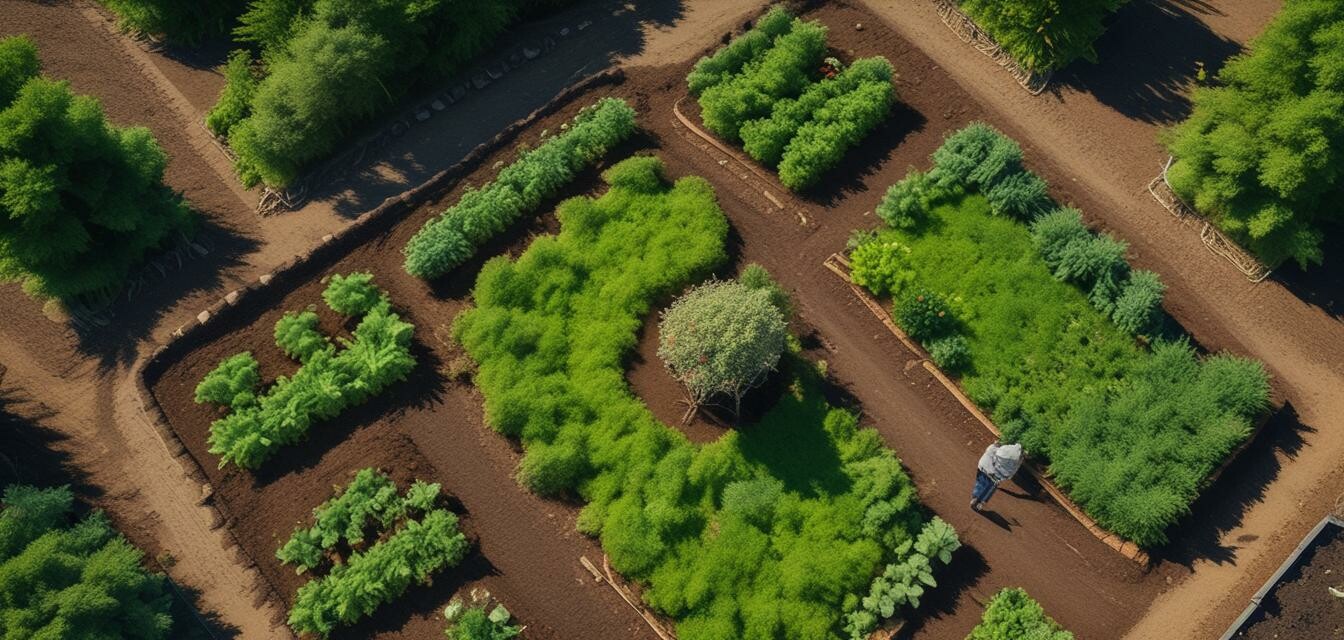
Global composting initiatives making a difference
- Composting is essential for reducing waste and enhancing soil health.
- Various countries are adopting innovative composting solutions to tackle waste problems.
- Community-driven efforts are crucial in promoting sustainable practices.
- International collaboration plays a vital role in advancing composting technologies.
- Educating communities on composting can lead to significant environmental benefits.
Composting is rapidly becoming an essential part of waste management strategies worldwide. With the increasing awareness of environmental challenges, various global initiatives are championing composting to promote sustainability. This article explores these initiatives and their significant impact.
The importance of composting
Composting is the natural process of breaking down organic matter, such as food scraps and yard waste, into nutrient-rich soil. This process not only reduces landfill waste but also enriches soil, improves plant health, and enhances the ecosystem. Composting initiatives around the world focus on expanding this sustainable practice, addressing issues like food waste, greenhouse gas emissions, and soil degradation.
International initiatives promoting composting
Different countries have embraced composting in various forms. Here are a few significant initiatives:
| Country | Initiative | Description |
|---|---|---|
| United States | Compost for Community | A national initiative encouraging urban composting programs in cities to reduce waste and educate the public. |
| Germany | Green Bin Program | A comprehensive waste separation system that promotes compostable materials collection through designated bins. |
| Australia | Household Composting Grants | Local governments provide financial support to families starting home composting projects to encourage waste reduction. |
| Japan | Community Composting Projects | Neighborhoods collaborate to manage composting stations, turning kitchen waste into valuable compost for local gardens. |
| South Africa | Waste Management Act | Legislation that mandates municipalities to implement composting programs and train citizens on proper composting techniques. |
Community-driven composting programs
The role of community participation in composting initiatives cannot be overstated. Communities can increase awareness, boost participation rates, and create ownership for local composting. Here are a few successful community programs:
- Neighborhood Composting Hubs: Facilities where residents can drop their organic waste and learn about composting.
- School Composting Programs: Schools incorporating composting into their curriculum to educate children about sustainability.
- Compost Workshops: Local workshops where residents can learn effective composting techniques useful for home or community gardens.
Technological advancements in composting
Innovative technologies are also reshaping composting practices. These advancements can enhance efficiency and effectiveness in composting processes. Here are some examples:
| Technology | Benefits | Examples |
|---|---|---|
| In-vessel composting | Reduces odor, allows for faster composting, and minimizes land space usage. | Composter machines like those used in municipal settings. |
| Compost aerators | Helps in aerating compost piles quickly, promoting efficient microbial activity. | Tools or machines installed in large composting sites. |
| Mobile composting solutions | Flexible systems that can move to various locations, making composting more accessible. | City-operated mobile compost sites that collect and convert organic wastes on the go. |
Challenges faced by composting initiatives
Despite the various benefits, composting initiatives face challenges that hinder their success. Some of these challenges are:
- Lack of public awareness and education about composting.
- Inadequate infrastructure and support from local governments.
- Contamination of compost materials, affecting the quality of compost produced.
- Resistance to change in waste management practices.
Global collaboration for better composting
International support and collaboration can enhance the effectiveness of composting initiatives. Global organizations are forming partnerships to share knowledge, resources, and technologies. Some of these collaborations include:
- Waste & Resources Action Programme (WRAP): Supporting local governments in improving waste management practices.
- International Solid Waste Association (ISWA): Fostering global dialogue on sustainable waste management, including composting.
- Composting Council of Canada: Sharing best practices and resources among Canadian municipalities.
The role of education in composting adoption
Educating communities on the benefits of composting is essential for increasing participation. Initiatives often include:
- School programs that teach the composting process.
- Community workshops that explain how to compost effectively.
- Online resources to help individuals understand the composting process and troubleshoot common issues.
Conclusion
Global composting initiatives are making a significant difference in our approach to waste management, soil health, and environmental sustainability. By promoting public awareness, community involvement, and innovative technologies, these initiatives encourage responsible practices and play a crucial role in protecting our planet. As we continue to embrace composting, it’s paramount to remain informed about new trends and developments, which you can explore further in our Composting News section.
Pros
- Reduces landfill waste significantly.
- Creates nutrient-rich compost for gardening and farming.
- Promotes sustainable practices in communities.
- Encourages environmental education and responsibility.
Cons
- Initial setup costs can be high for some technologies.
- Requires ongoing education to maintain effective practices.
- Public resistance to changing established waste management routines.